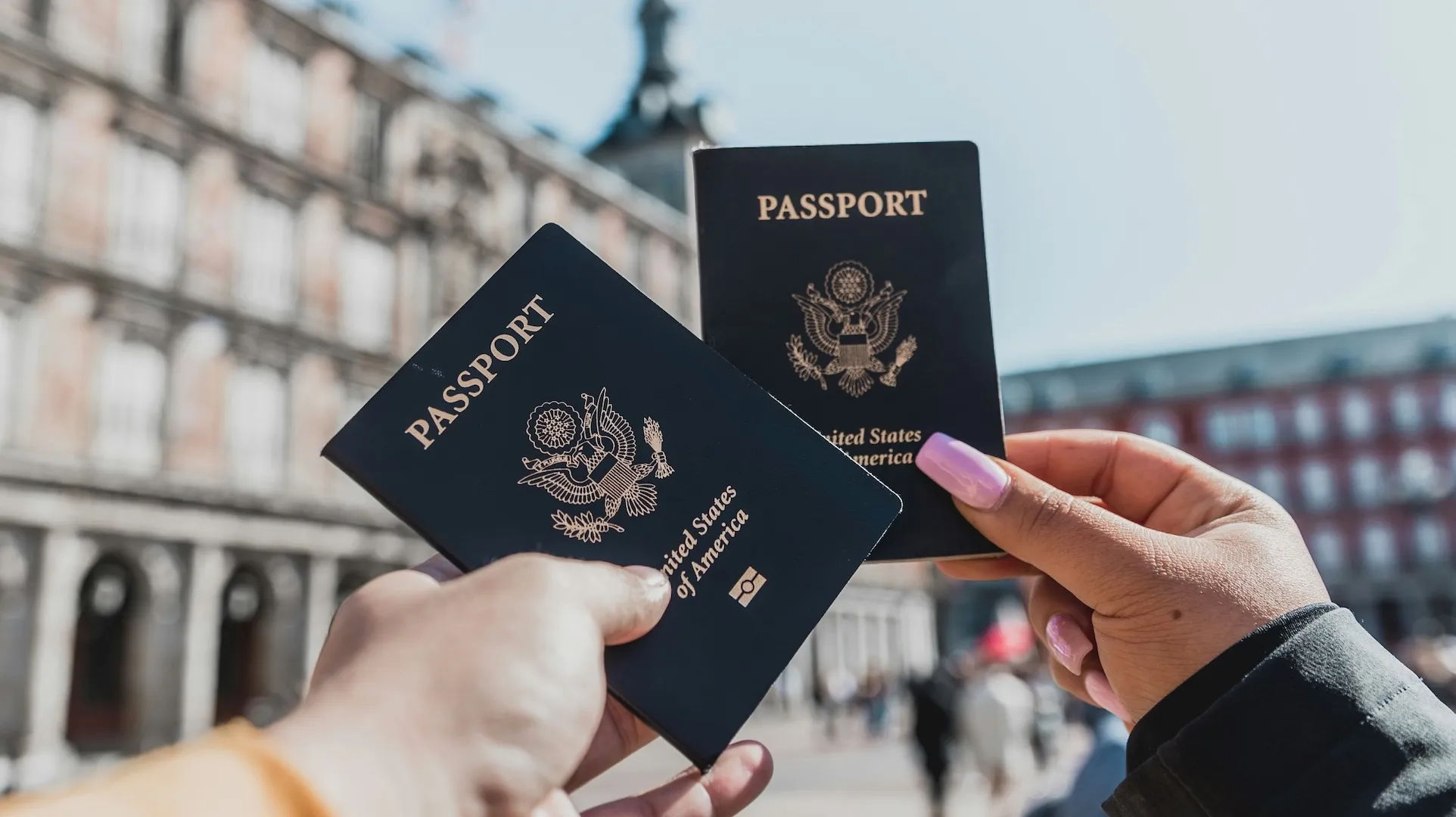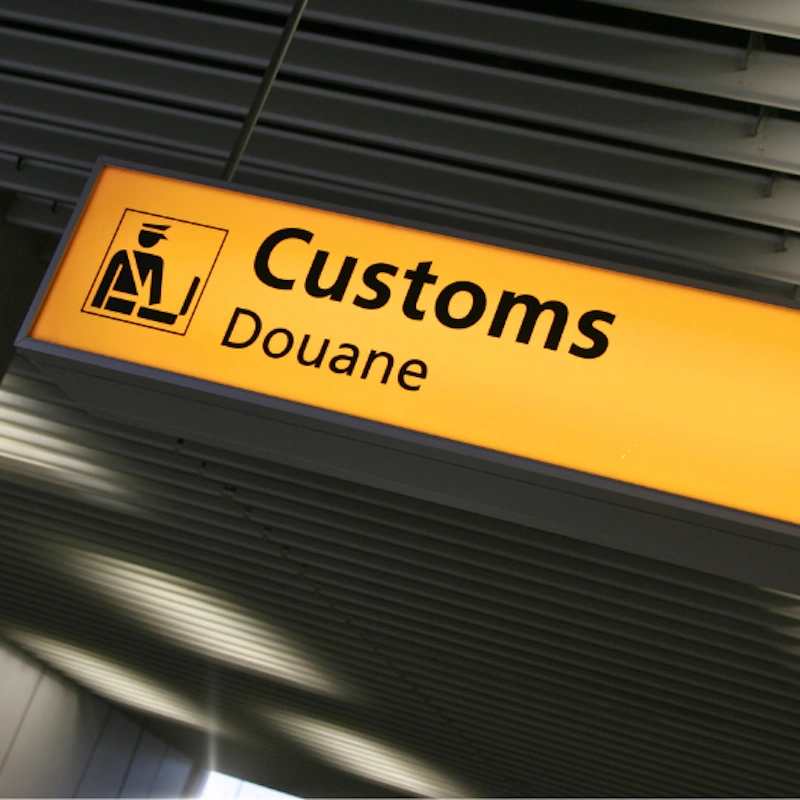
Documents You Need When Traveling to Europe
Sarah Pardi - December 23, 2025
Home > Travel Requirements, Policy & Authorization > Documents You Need When Traveling to Europe
Share this post
If you're heading to Europe this year, you may be wondering what kinds of documents you will need for your upcoming trip.
With all of the talk about changing policies, new travel requirements, and growing tourism, it's a wise question to ask.
In this article, we're going to go over which documents (like Schengen travel insurance) you need in order to travel to Europe so you have the information you need to make your journey overseas as smooth as humanly possible.
What documents do you need when traveling to Europe?
Believe it or not, the required documents are not the same for everybody. The documents that you need to bring depend on your nationality and how long you're going to be in Europe.
They also depend on which European country you are visiting.
Most European countries are in something called the Schengen area. The Schengen area is a group of 29 European countries that have agreed to get rid of border control checks between them. They do this through a shared visa system with strict Schengen visa requirements.
The Schengen area isn't geographical. It's an official agreement between countries, whether their borders physically touch or not. These countries include:
Austria, Belgium, Bulgaria, Croatia, the Czech Republic, Denmark, Estonia, Finland, France, Germany, Greece, Hungary, Iceland, Italy, Latvia, Liechtenstein, Lithuania, Luxembourg, Malta, the Netherlands, Norway, Poland, Portugal, Romania, Slovakia, Slovenia, Spain, Sweden, and Switzerland.
Cyprus is also in the process of qualifying.
This means if you're traveling to any of these countries, say Portugal for example, you'll need to apply for a Schengen visa for Portugal.
The Schengen area has different entry requirements than the United Kingdom, for example, as the UK isn't in the Schengen area.

Requirements for US citizens traveling to Europe
If you are a US citizen, you can enjoy visa-free trips to Europe! If you're heading to a European country for under 90 days, you do not need to apply for a visa - but that doesn't mean you won't have to bring any documentation at all.
US citizens to the Schengen area
If you're traveling to any country in the Schengen zone, you do not need a visa so long as you don't stay for more than 90 days. The 90 day limit isn't per country; it applies to the entire zone.
This means if you want to travel to Spain, France, and Portugal in one trip, the entire trip needs to be under 90 days in length.
So, what documents do you need?
For Schengen stays under 90 days in length:
You'll need to have both:
- A valid passport.
- Pre-travel authorization (beginning at the end of 2026).
For Schengen stays over 90 days in length:
You will need both:
- A valid passport.
- The appropriate long stay visa or resident permit (which one depends on the specific country).
If you aren't a US citizen but live in the US as a Green Card holder or resident, you can learn more about what the travel requirements are for you here.

US citizens to the United Kingdom
The United Kingdom isn't in the Schengen area (or the European Union), so it has its own entry requirements for foreigners, including US citizens.
Wales, Scotland, and Northern Ireland are also in the United Kingdom, so the same rules apply.
For trips under 6 months in length:
US citizens will need both:
- A valid passport.
- An approved ETA pre-travel authorization.
This only applies to those visiting who do not intend to work while in the UK. If you plan to work, you will need to apply for a visa.
For trips over 6 months in length:
US citizens will need both:
- A valid passport.
- The appropriate visa.
US citizens to Ireland
Ireland isn't in the Schengen area or the UK, but is in the European Union. It has similar requirements to the Schengen area, but without the upcoming ETIAS requirement.
For stays 90 days or less:
- A valid passport.
For more than 90 days:
- A valid passport
- The appropriate Irish visa.

Requirements for Indian, Chinese, and other non-exempt citizens
Some countries have similar agreements with the Schengen area, so short term travel to Europe is visa-free. This includes Canadian citizens, Australian citizens, Japanese citizens, and others.
However, some countries do not. If you're a citizen of India, China, South Africa, or any other country that doesn't have "exempt-visa" status with the Schengen area, you will need to apply for a visa.
Today, the application process is in person and on paper. In the future, it will be online, through a secure portal called the EU Visa Application Platform, or EU VAP for short.
Visa-required citizens to the Schengen area
Citizens of specific countries are considered "visa required". This includes citizens of China, India, and more.
For Schengen stays under 90 days in length:
If you're not from a visa-exempt country, you will need both:
- A valid passport.
- Schengen travel insurance that meets Schengen visa travel insurance requirements.
- A Schengen visa.
For Schengen stays over 90 days in length:
You will need both:
- A valid passport.
- A long stay visa or resident permit.
Visa-required citizens to the United Kingdom
As described above, the UK isn't in the Schengen area. Because of this, it has its own entry requirements. Wales, Scotland, and Northern Ireland are also in the United Kingdom, so the same rules apply.
For trips under 6 months in length:
If you are not from a visa-exempt country, you will need both:
- A valid passport
- A standard visitor visa
This includes Chinese, Indian, and South African citizens, as well as several others.
For trips over 6 months in length:
- A valid passport
- The appropriate visa
Visa-required citizens to Ireland
Ireland isn't in the Schengen area or the UK. However, like both of these areas, some countries are visa-exempt and others are not. If you are from India, China, South Africa, or any other non-visa-exempt country, you will need to provide the following.
For stays 90 days or less:
You will need both:
- A valid passport.
- A Short Stay "C" Visa
For more than 90 days:
Both are required:
- A valid passport.
- The appropriate Irish visa.
An important reminder
When it comes to immigration, entry requirements, and visas, you should always get actionable information from the official source.
This means you should look at the official Embassy website of the country that you're traveling to or a trusted partner (like a visa processor).
You should always prioritize the information found there, as it will be the most accurate and up-to-date.
Also, you may be required to carry your ID with you at all times in specific countries. Learn more in this guide: Which countries you must carry ID in
FAQs about required documents
Related posts
Upcoming travels ? Get Insured !
Find the right insurance for your trip by using our powerful comparison tool!
Sarah Pardi - February 5, 2026
Sarah Pardi - January 31, 2026
Sarah Pardi - January 30, 2026
Sarah Pardi - January 23, 2026





